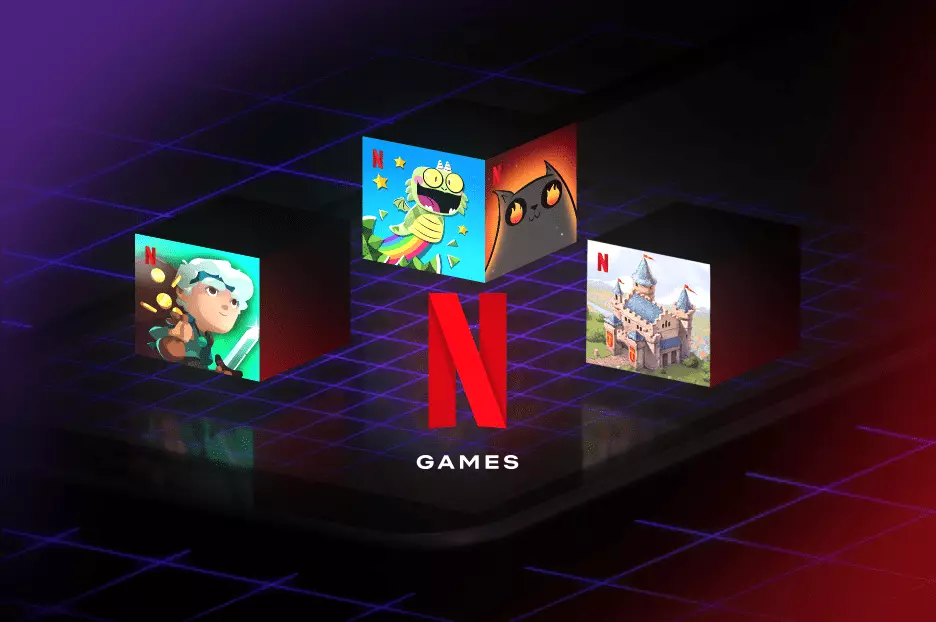In a bold stride toward the future of gaming, Netflix Games aligned itself with generative AI, a decision spurred by the appointment of Mike Verdu as the new vice president overseeing this innovative technology. Only five months later, however, Verdu has parted ways with the company, casting a pall over Netflix’s ambitions in this area. Initially, his enthusiastic embrace of generative AI—marking it as the next great frontier in game development—echoed a wave of optimism reminiscent of the 1990s, a time of exhilarating technological breakthroughs in gaming. Yet, the abrupt change raises questions about the viability of this endeavor, hinting that the company’s push may have been premature or ill-fated.
A Vision Misaligned
Verdu’s zealous proclamations about the possibilities of generative AI were optimistic but remained largely abstract, lacking tangible frameworks or strategic plans. In his LinkedIn announcement, he vividly described a renaissance-like atmosphere where creativity and innovation could reignite the industry. However, amidst this rhetorical flourish, he failed to provide concrete details on how such technology would tangibly impact software development, especially considering the broader challenges Netflix Games faces, including industry layoffs and rising competition. His exit suggests that aspirations may have outstripped preparation, leaving a leadership vacuum at a critical juncture.
The Challenges of Innovation
Netflix has consistently navigated a turbulent landscape since it ventured into the gaming arena. While the streaming giant boasts a massive content library, its gaming strategy remains under scrutiny. This dual approach—developing original titles versus licensing existing popular IPs—poses a strategic dilemma. Verdu’s departure raises concerns about the company’s commitment to original game development during a time when maintaining subscriber growth and retention is vital. With titles like Grand Theft Auto attracting more downloads than anything developed in-house, Netflix’s focus appears skewed towards recognized stakeholders rather than cultivating new, unique offerings. The easy path of licensing may appeal to Netflix’s conservative side, but it also risks stunting potential innovation.
Evaluating Subscriber Engagement
Despite the initial enthusiasm for its games, Netflix has reported that its own titles have not substantially impacted subscriber retention. The success of “Squid Game: Unleashed” is a silver lining, revealing that some original content can appeal to audiences. However, its overall performance is characterized as “relatively small” in enhancing subscriber metrics. This situation pushes Netflix even further toward a crossroads: should the company invest in developing unique, riskier gaming experiences or should it focus on licensing familiar franchises that promise easier returns? The decision-making trajectory seems to waver, reflecting a deeper indecisiveness about how to integrate gaming within its broader subscription model successfully.
The Role of Generative AI
Generative AI may hold the potential to catalyze stunning advances in game development, yet it also invites skepticism. Netflix’s ambition to leverage this technology must overcome not only technical but also organizational hurdles. Questions loom about whether the necessary infrastructure and talent to effectively harness generative AI are currently in place. Verdu’s early enthusiasm may have overshadowed critical analysis of these operational challenges. With his exit, Netflix’s technological foray might not only stall but could also signal a retreat from innovative risk-taking that characterizes the industry’s evolution. The company faces an uphill battle to redefine its role in the gaming sector while contending with the inherent unpredictability of game development technologies.
Navigating Uncertainty
The unresolved status of Netflix Games following Verdu’s departure leaves stakeholders questioning the future direction of the company’s gaming ambitions. Investors and consumers alike will be watching closely to see if Netflix can successfully pivot toward generative AI or if it will adopt a more conservative approach to game development. The gaming landscape is shifting rapidly, driven by both innovation and competition, making it vital for Netflix to align its strategies with market dynamics rather than merely following dated assumptions about tech and content.
This precarious position reveals deeper truths about the entertainment ecosystem, where the convergence of high-risk innovation and consumer expectations creates a challenging tableau for companies like Netflix. As the dust settles from this initial phase, lessons learned might reshape how Netflix and other industry titans approach the ever-evolving marketplace of gaming.

